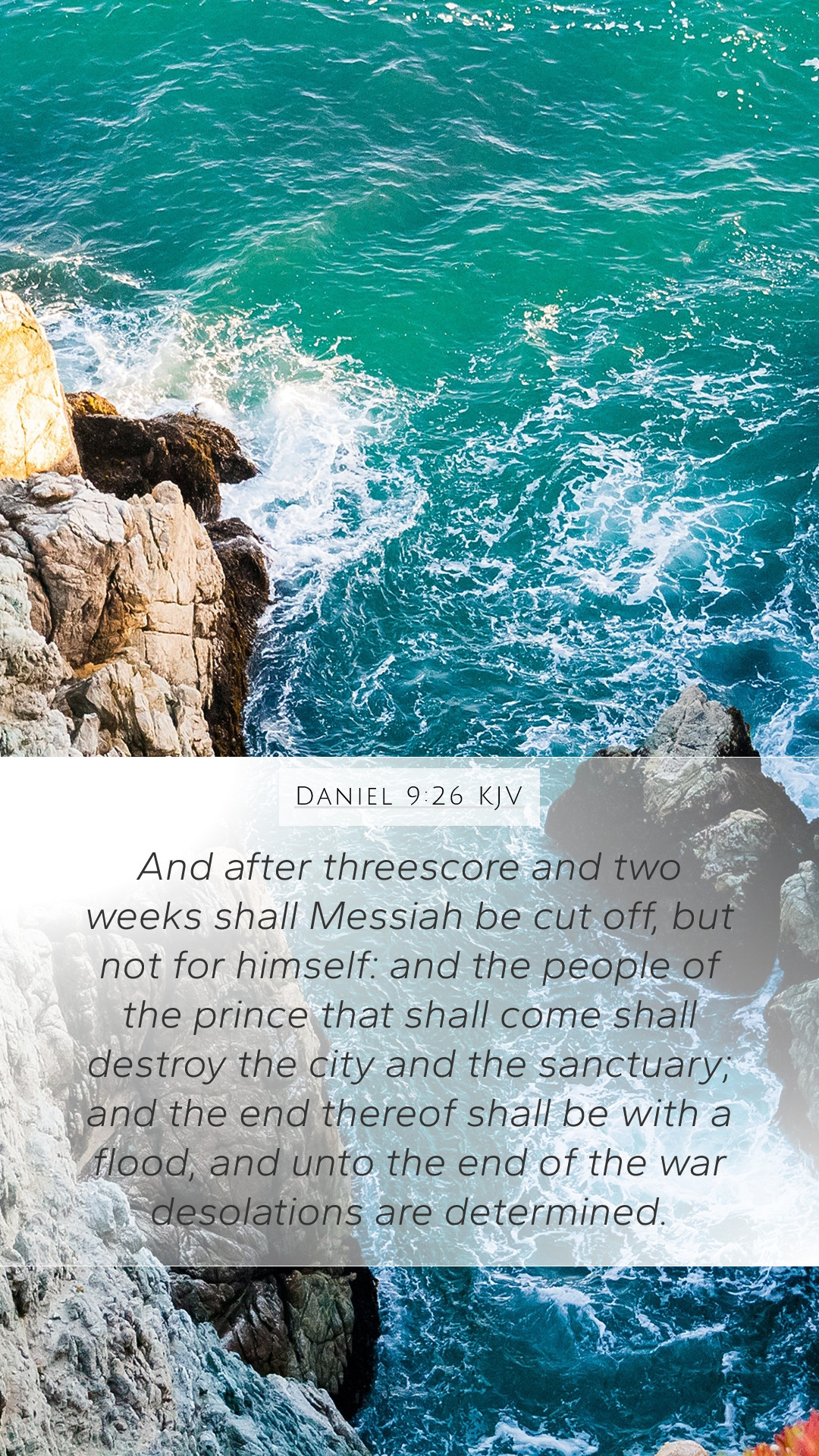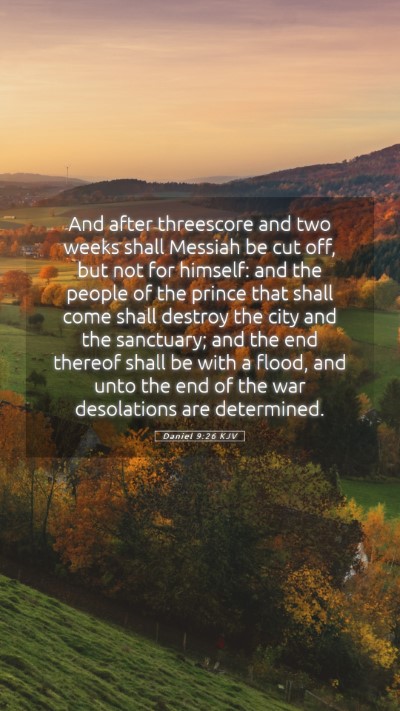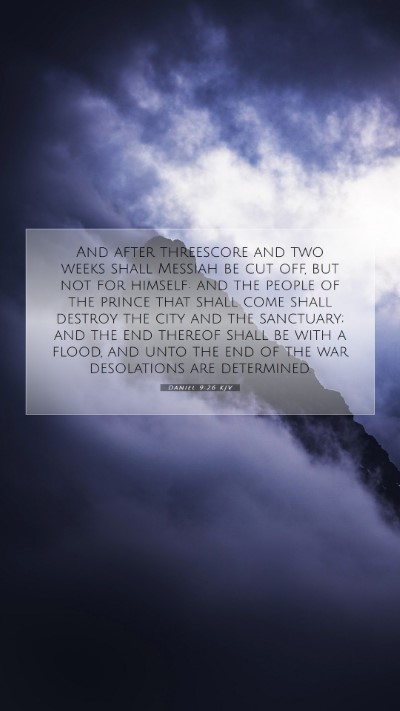Understanding Daniel 9:26: A Comprehensive Bible Verse Commentary
In Daniel 9:26, we encounter a profound prophecy that possesses significant implications in both historical and theological contexts. This verse states:
"And after threescore and two weeks shall Messiah be cut off, but not for himself: and the people of the prince that shall come shall destroy the city and the sanctuary; and the end thereof shall be with a flood, and unto the end of the war desolations are determined."
Overview of the Verse
This verse is part of a larger prophetic vision given to Daniel concerning the future of Israel and the coming of the Messiah. It marks a crucial moment in biblical prophecy, detailing the timeline surrounding the coming of Christ, His death, and the eventual destruction that would befall Jerusalem.
Historical Context
Daniel wrote during the Babylonian exile of the Jews, a time when they were longing for restoration. The context of this chapter includes:
- The seventy weeks prophecy, which outlines God’s plan for Israel.
- The anticipation of the Messiah, who is identified as the ultimate deliverer.
- The reference to the destruction of the Jerusalem temple, reflecting the coming conflict.
Commentary Insights
Matthew Henry’s Commentary: Henry emphasizes the significance of the phrase "cut off," interpreting it as a foretelling of the Messiah's crucifixion. He notes that the purpose for which the Messiah is "cut off" is not for Himself, but rather, as a substitutionary sacrifice for humanity's sins. This act highlights the essence of the Gospel and God's redemptive plan.
Albert Barnes’ Notes: Barnes focuses on the timeline mentioned in the verse, stressing the implications of "threescore and two weeks." He explains that this period is crucial in understanding the prophetic chronology leading up to Christ's coming. Barnes connects this cut-off moment to the ultimate fate of Israel, where the Messiah's death leads to both the destruction of the city and the spiritual blindness of the Jewish people, propounding a theme of mourning and loss.
Adam Clarke's Commentary: Clarke offers a detailed linguistic analysis, interpreting "the people of the prince that shall come" to refer to the Romans, who were responsible for the destruction of Jerusalem in A.D. 70. He presents a nuanced explanation of the terms used, reinforcing the idea that this prophecy spans beyond mere historical events to include significant theological implications about judgment and grace.
Key Themes and Interpretations
- The Coming of the Messiah: The verse foreshadows the arrival of Jesus as the promised Messiah, which is central to Christian belief.
- The Crucifixion: "Cut off" directly relates to Christ's death, indicating His sacrifice for humanity.
- Judgment on Jerusalem: The consequential destruction of Jerusalem serves as a fulfillment of prophecy and divine judgment.
- Hope and Restoration: Despite the dire predictions, the overarching narrative reflects hope in God's ultimate redemptive plan for His people.
Biblical Cross References
In studying Daniel 9:26, it is beneficial to consult related scripture that sheds further light on its meaning. The following verses are significant:
- Isaiah 53:5: "But he was wounded for our transgressions; he was bruised for our iniquities: the chastisement of our peace was upon him; and with his stripes, we are healed."
- Luke 24:20: "And how the chief priests and our rulers delivered him to be condemned to death, and have crucified him."
- Matthew 23:37-39: "O Jerusalem, Jerusalem, thou that killest the prophets... for I say unto you, Ye shall not see me henceforth, till ye shall say, Blessed is he that cometh in the name of the Lord."
Applying the Verse to Daily Life
Understanding Daniel 9:26 allows modern readers to draw lessons applicable to daily life:
- Recognizing the significance of sacrifice and selflessness, exemplified in the life of Christ.
- Realizing the implications of obedience and its correlation with divine judgment.
- Embracing the hope of redemption and restoration in our personal relationships and communities.
Conclusion
In summary, Daniel 9:26 serves as a vital component in biblical prophecy that encapsulates the themes of sacrifice, judgment, and redemption. Its careful examination through various commentaries provides a rich tapestry of meaning, encouraging believers to reflect on the significance of Jesus Christ as the Messiah and the implications of His sacrifice for humanity. As believers engage with this scripture, may they find deepen their Bible verse understanding and enhance their Bible study insights.


